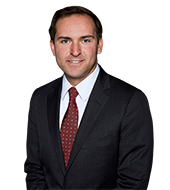Approval of US$237.5 Million Settlement in Boeing Derivative Action Demonstrates Impact of Section 220 Demand in ESG Litigation
In a derivative action In re Boeing Company Derivative Litigation, Boeing’s stockholders obtained approval from the Delaware Court of Chancery for a landmark US$237.5 million settlement of derivative claims targeting the company’s board for safety failures that led to catastrophic crashes of two 737 MAX jetliners in 2018 and 2019.1 This settlement demonstrates the importance of books and records demands under 8 Del. C. § 220 as a means for a plaintiff to conduct pre-complaint discovery and obtain the particularized facts necessary to support a Caremark2 claim, one of the most difficult theories upon which a plaintiff might base a fiduciary duty claim. This decision also portends a trend in ESG-related litigation.
ESG litigation is often event-driven and stems from catastrophic events. In the Boeing action, the two crashes caused not only reputational harm to the company but US$20 billion in non-litigation costs and more than US$2.5 billion in litigation costs. The crashes, and resulting damage to the company, also led to several derivative cases, which were ultimately consolidated, seeking to hold Boeing’s directors and officers liable for failing to provide oversight of the company’s safety protocols.
As with many ESG-related lawsuits, the Boeing action began with a demand for books and records in accordance with 8 Del. C. § 220. After extensive production of over 640,000 pages of documents, stockholders filed suit on behalf of Boeing against the company’s directors and officers, seeking to recover the costs and economic losses resulting from the 737 MAX crashes. The consolidated derivative complaint alleged that the directors and officers failed to monitor aircraft safety before the crashes and then failed to respond to known safety risks after the first crash.
Boeing is part of an ongoing trend in ESG litigation involving so-called Caremark cases, in which plaintiffs seek to hold directors liable for breaching their oversight responsibilities imposed by the directors’ fiduciary duties of loyalty and care. Caremark and its progeny require directors to (1) make a good-faith effort to ensure that there are information and reporting systems in place to prevent the corporation from violating the law, and (2) once such reporting systems are in place, to monitor or oversee their operation.3 Historically, Caremark claims have been difficult for plaintiffs to successfully maintain, because the legal standard to assert a claim for breach of fiduciary duty based on a failure to provide oversight presents a high hurdle for plaintiff and is favorable to directors. Specifically, an oversight claim requires a plaintiff to allege either that (1) “the directors utterly failed to implement any reporting or information system or controls” or (2) “having implemented such a system or controls,” directors “consciously failed to monitor or oversee its operations thus disabling themselves from being informed of risks or problems requiring their attention.”4
In Marchand v. Barnhill,5 the Delaware Supreme Court noted that a board’s oversight obligations are enhanced with respect to mission-critical products while operating in a heavily regulated industry. Boeing operates in a heavily regulated industry and plaintiffs pled facts that, if true, could support a finding that the Boeing board utterly failed to implement internal controls which affected “essential and mission critical” areas of the business.6 In allowing the claims to proceed, the Court of Chancery noted, based on the plaintiffs’ allegations, that board meeting minutes did not demonstrate that directors were engaged with airplane safety, contrary to the core mission of Boeing’s business. The court also accepted as true the allegations that there was no board committee specifically tasked with overseeing airplane safety and that there were no regular protocols requiring Boeing’s management to report airplane safety issues to the board. The court noted that the pleaded facts described the directors’ “complete failure to establish a reporting system for airplane safety” and “their turning a blind eye to a red flag representing airplane safety problems.”7 The court added that Boeing was even alleged to have “publicly lied” about its own monitoring efforts.8 The court further recognized that, according to the complaint, the company had a culture that prioritized profits, political connections, and efficiency over engineering and safety.
As the case proceeded into discovery, emails emerged warning that the 737’s maneuvering characteristics augmentation system, intended to help pilots recover from stalls, was “running rampant” and behaving in an “egregious way” in simulations. Further discovery revealed that pilots had reported they were often unaware that this system could activate in ways that would make a stall uncontrollable and unrecoverable. As the court noted, the settlement “reflect[ed] the strength of the claims and the road ahead in this case.”9
The Boeing settlement, which is perhaps the largest Caremark settlement in Delaware history, underscores the importance for directors to identify critical ESG and oversight issues, determine whether the board or an existing committee has the capacity to address them or whether a different committee is needed, and ensure adequate reporting mechanisms are in place. And as reflected in extensive books and records demands which precipitated the lawsuit, it is also critical that boards build a good record of these issues, to reflect their efforts and avoid distracting and expensive challenges to their oversight activities.
This publication/newsletter is for informational purposes and does not contain or convey legal advice. The information herein should not be used or relied upon in regard to any particular facts or circumstances without first consulting a lawyer. Any views expressed herein are those of the author(s) and not necessarily those of the law firm's clients.





